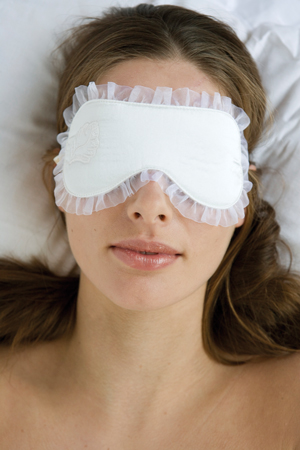Ask the experts: Sleep remedies during pregnancy
As a follow up to part one of her series […]
As a follow up to part one of her series on getting better sleep during pregnancy, Dr. Michele Brown, board certified OB/GYN, offers remedies for moms-to-be facing challenges getting good rest at night.

Here are some suggestions:
- Avoid stimulants such as caffeine and nicotine before bed. Both reduce sleep onset in most people and impair the ability to achieve deep sleep.
- Check with your clinician about other medications that are being taken that may have stimulating effects (asthma medication or thyroid medications) and avoid taking them prior to bedtime, if possible.
- Avoid heavy meals within 2 hours of bedtime. This can interfere with sleep. However, a light snack can be sleep inducing. Some studies have shown that eating food containing carbohydrates before bedtime can improve sleep.
- If heartburn is a cause of insomnia, avoid eating late, avoid spicy food, elevate the head of the bed and use antacids if necessary.
- Avoid drinking excessive fluids in the late evening since pregnant women have to wake up to urinate during the night (nocturia).
- Regular exercise in the late afternoon or early evening can deepen sleep. However, avoid exercise too close to bedtime which may have a stimulating effect and delay sleep onset.
- The bedroom should be an environment conducive to sleeping–quiet, dark, and comfortable.
Clinicians may need to recommend an adjustment in bed times and wake times. Later sleep onset time was associated with poorer sleep and reduced total nocturnal sleep time and sleep efficiency. Maintaining regular hours and an earlier bedtime will increase time in bed, assuring a sufficient amount of sleep. At least 8 hours in bed nightly is currently suggested.
I advise pregnant women to take no more than one nap a day to avoid compromising nighttime sleep quality. Improving nighttime sleep patterns would most likely decrease the need for napping.
Avoid pregnancy associated discomforts that can cause sleeplessness. Use properly placed pillows and heat to ease back pain. Avoid sleeping with a top leg compressing the bottom leg and wear support hose to prevent leg cramps. When sleep on the side, it may be helpful to place a pillow between the legs.
Relaxation techniques
These are relaxation techniques that release physical and mental tension. Methods may include:
- listening to relaxing music
- imagery, meditation
- autogenic training
- progressive muscle relaxation
Behavioral therapies
Sleep specialists have various techniques for breaking the association of going to bed and sleeplessness.
- Be in bed only when sleepy and leave the bedroom when awake. Repeat as often as necessary throughout the night.
- Sleep restriction therapy:
- Calculate average sleep time per night.
- Time in bed should be at least 5 hours or the average sleep time–whichever is greater.
- Pick a reasonable rise time
- Bedtime should be the rise time minus time in bed
- Patient should maintain this sleep window for 1 week–going to bed at calculated bedtime and rising at prescribed rise time.(This is called the sleep window).
- After 1 week, increase the sleep window based on sleep efficiency, i.e. if sleep efficiency is more than 90 percent, increase bed time by 15 minutes. If sleep efficiency is between 85 and 90 percent, keep time in bed constant. If sleep efficiency is less than 85 percent then decrease time in bed by 15 minutes. (Sleep efficiency is calculated by time asleep divided by time in bed times 100.)
- Keep rise time constant and only adjust bedtime.
- Keep making weekly adjustments till optimal sleep efficiency is reached with minimal daytime sleepiness.
With growing evidence associating disturbed sleep and detrimental effects on maternal/fetal well being, efforts should be made to maximize restful sleep in pregnancy. Suggestions to enhance the sleep environment along with implementation of sleep behaviors such as regular bedtimes, dietary modifications, positioning aids to support the gravid uterus and extremities can be helpful. In addition, obstetricians may refer patients to therapists who are experienced in the use of relaxation aids along with behavior and cognitive therapies. Medications should be the last resort in the most extreme cases and only after careful discussion with the obstetrician. Research into finding more sleep promoting strategies that are safe and effective in pregnancy is needed.







